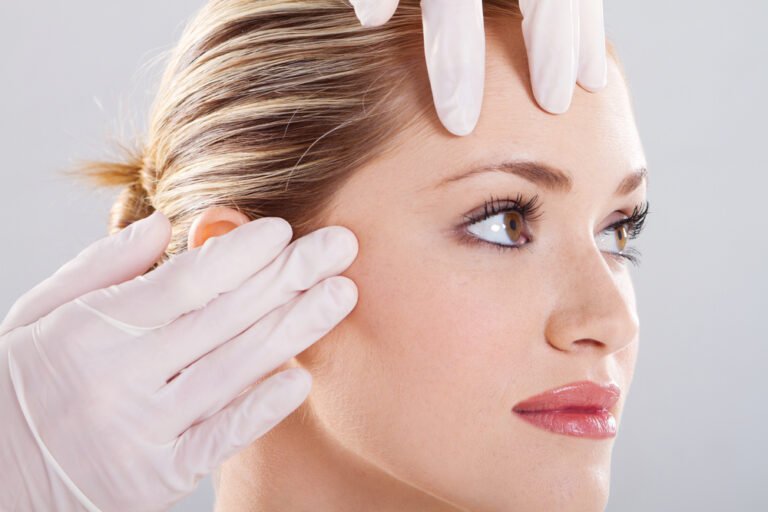Importance of Nutrition for Overall Health
The saying “you are what you eat” holds true, and when it comes to our skin, the impact of nutrition cannot be overstated. A well-balanced diet not only supports our internal organs but also plays a vital role in maintaining healthy and radiant skin.
Link Between Nutrition and Skin Health
The connection between nutrition and skin health is intricate. The nutrients we consume directly influence the structure, function, and appearance of our skin. Understanding this relationship is key to achieving and maintaining optimal skin health.
Role of Vitamins (A, C, E)
Vitamins A, C, and E are powerhouse antioxidants that contribute to skin health. Vitamin A promotes cell turnover, Vitamin C supports collagen production, and Vitamin E protects the skin from oxidative stress, collectively providing a robust defense against aging and damage.
Importance of Omega-3 Fatty Acids
Omega-3 fatty acids, commonly found in fatty fish and flaxseeds, play a crucial role in maintaining skin elasticity and hydration. Including these essential fatty acids in your diet can contribute to a supple and moisturized complexion.
Significance of Antioxidants
Antioxidants, present in various fruits and vegetables, help combat free radicals that can damage skin cells. A diet rich in antioxidants not only promotes skin health but also contributes to a youthful and vibrant appearance.
Impact of Water Intake on Skin
Proper hydration is fundamental for skin health. Water helps maintain skin moisture, preventing dryness and promoting a healthy complexion. Staying adequately hydrated contributes to a natural glow and reduces the risk of skin issues.
Best Hydrating Practices for Skin Health
In addition to water intake, incorporating hydrating foods such as watermelon, cucumber, and celery into your diet can enhance skin moisture. Balancing internal hydration with external moisturizing practices is key for vibrant and supple skin.
Incorporating Fruits and Vegetables
Fruits and vegetables are rich in vitamins, minerals, and antioxidants essential for skin health. Berries, citrus fruits, leafy greens, and colorful vegetables provide a spectrum of nutrients that contribute to a radiant complexion.
Benefits of Lean Proteins for Skin
Lean proteins, including poultry, fish, and legumes, support collagen production and tissue repair. Including adequate protein in your diet helps maintain skin elasticity and promotes overall skin health.
Importance of Whole Grains
Whole grains, such as quinoa, brown rice, and oats, provide essential nutrients like zinc and selenium, contributing to skin health. These grains also have a lower glycemic index, reducing the risk of skin issues related to high sugar consumption.
Impact of Sugary and Processed Foods
Consuming excessive sugary and processed foods can contribute to skin issues, including acne and premature aging. Managing sugar intake and opting for whole, unprocessed foods supports skin health from the inside out.
Role of Dairy in Skin Health
While dairy products are a source of nutrients, some individuals may experience skin issues due to dairy consumption. Understanding your body’s response to dairy and exploring alternative sources of nutrients can be beneficial for skin health.
Importance of Regular Exercise
Regular exercise promotes healthy blood flow, delivering nutrients and oxygen to the skin. Physical activity also aids in the removal of toxins through sweat, contributing to clearer and healthier skin.
Role of Adequate Sleep in Skin Regeneration
Quality sleep is essential for skin regeneration and repair. Lack of sleep can lead to increased stress hormones, contributing to skin issues. Prioritizing a consistent sleep routine supports overall skin health.
Managing Stress for Skin Well-being
Stress can manifest on the skin in various ways, from acne breakouts to exacerbating existing skin conditions. Adopting stress-management techniques, such as meditation or yoga, positively impacts both mental well-being and skin health.
Acne and Diet Connection
The relationship between diet and acne is a subject of ongoing research. While individual responses may vary, incorporating an anti-inflammatory diet with a focus on fresh fruits, vegetables, and omega-3 fatty acids may benefit those prone to acne.
Eczema and Nutritional Considerations
Individuals with eczema may find relief by identifying and avoiding trigger foods. Additionally, including foods rich in anti-inflammatory properties, such as fatty fish and turmeric, may help manage symptoms.
Aging and Skin Health
The aging process can be influenced by both genetic and environmental factors. While aging is a natural part of life, a nutrient-rich diet, along with proper skincare practices, can contribute to graceful aging and maintaining skin vitality.
Conclusion
External skincare practices, such as cleansing, moisturizing, and protecting the skin from the sun, are integral to a comprehensive approach to skin health. Combining these practices with a nutrient-rich diet maximizes the benefits for glowing skin.







